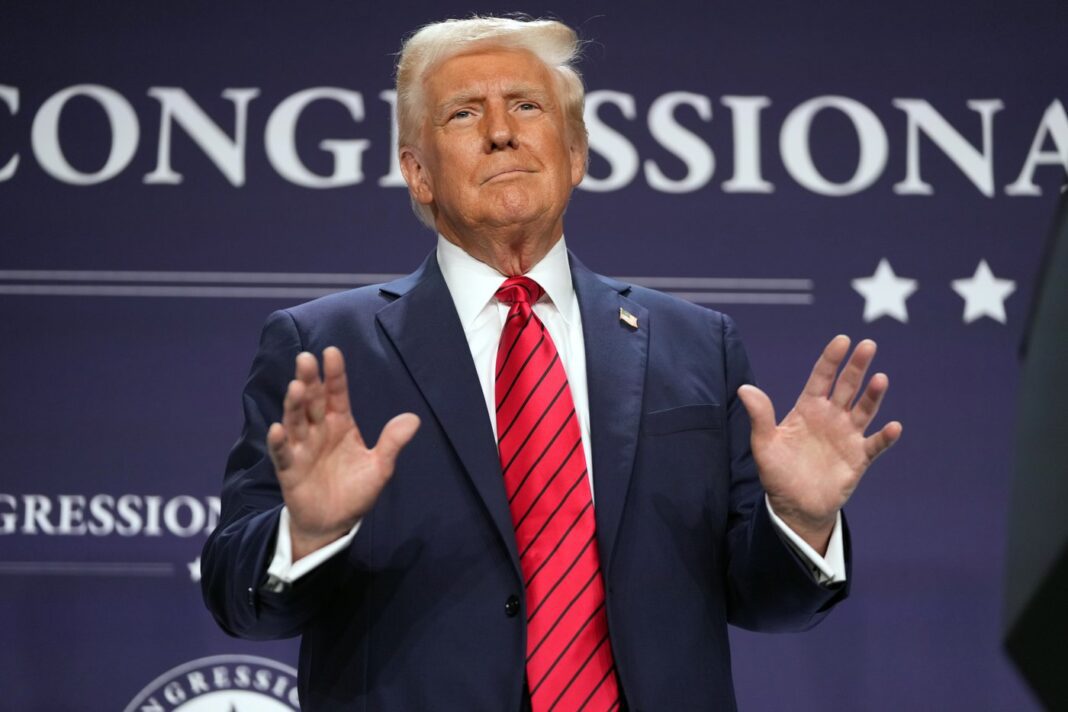Trade Tariffs Impact Global Markets
Global stock markets have experienced a sharp decline following the introduction of new trade tariffs by the United States. The decision to impose a 25 percent tariff on imports from Mexico and Canada has sparked widespread concern. These two countries are among the largest trading partners of the United States. The tariffs are set to take effect immediately, creating uncertainty among investors and businesses alike.
Stock market indexes such as the Dow Jones Industrial Average, S&P 500, and Nasdaq reported significant losses. Investors had hoped that the U.S. administration might reconsider the tariffs. However, officials confirmed that the tariffs would proceed as planned. The announcement has heightened fears of a possible trade war. Many businesses rely heavily on imports from Mexico and Canada, and the sudden increase in costs could affect their operations.
Market experts have warned that the tariffs could trigger further disruptions in the global supply chain. The higher import costs may lead to increased prices for goods and services. This situation could impact both businesses and consumers, potentially slowing down economic growth. The financial sector is closely monitoring the situation, as prolonged uncertainty could lead to further volatility in the markets.
Additional Tariffs on China
In addition to the tariffs on Mexico and Canada, the United States has announced an extra 10 percent tariff on Chinese imports. This tariff is in addition to the 10 percent tariff introduced last month. The decision is part of an ongoing trade dispute between the two countries. The dispute has been escalating for several months, with both countries imposing tariffs on each other’s goods.
China has already retaliated by imposing its own tariffs on American products. The retaliatory measures have added pressure to the global economy, intensifying the ongoing trade tensions between the two countries. The increased tariffs are expected to affect a wide range of products, including electronics, machinery, agricultural goods, and consumer goods. Electronics, such as smartphones and computer components, are likely to become more expensive due to higher import duties. Similarly, machinery and industrial equipment used by various industries could face price hikes, which may affect production costs and timelines.
Trade experts believe that the escalating trade tensions could have long-lasting effects on the global economy. Many businesses are reconsidering their supply chains and sourcing strategies. The uncertainty surrounding the tariffs has led to a decline in business confidence. Companies are becoming more cautious about making new investments or expanding their operations.
Economic Slowdown Concerns
Economic indicators have shown signs of a slowdown in recent weeks. The Atlanta Federal Reserve’s GDPNow model has estimated a significant decline in U.S. economic growth. The estimate for the first quarter of 2025 has dropped from +3.9 percent to -2.8 percent in just four weeks. The sharp decline is partly attributed to the impact of the new tariffs.
The slowdown in economic growth has raised concerns about a possible recession. This situation has been referred to as a “Trumpcession” by some economic analysts. The term combines the name of the U.S. administration with the word recession, indicating that the economic downturn is linked to recent policy decisions. Businesses that rely on international trade may struggle to maintain their profit margins. Higher import costs could force companies to cut jobs or reduce their operations. The combination of rising costs and slowing economic growth could have a ripple effect across various sectors.
In addition to the trade tariffs, foreign aid to Ukraine has been suspended. The decision comes after rising tensions between the two countries. The suspension of aid could have significant implications for international relations. The decision has added to the uncertainty surrounding the global economy.
The recent developments have sparked widespread debate among economists and policymakers. Many are calling for measures to stabilize the economy and prevent further disruption. The administration is set to address the nation in a joint congressional session to provide further updates on the situation. The outcome of these discussions will be closely watched by investors and businesses around the world.

